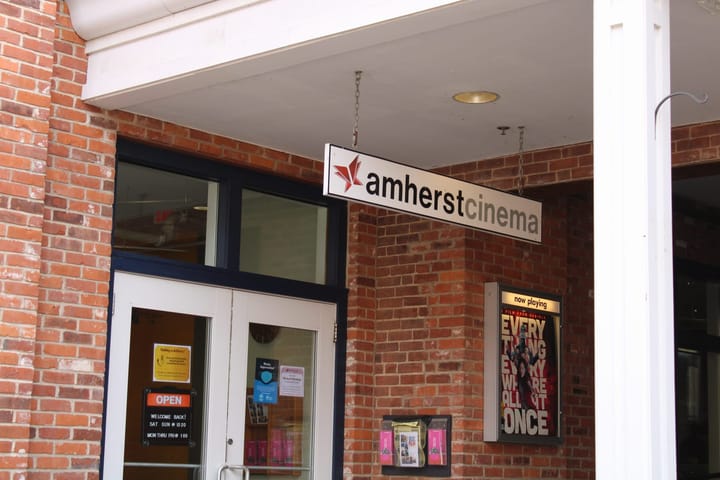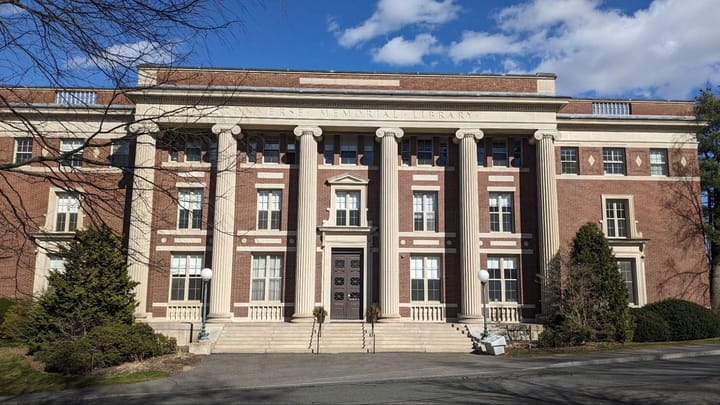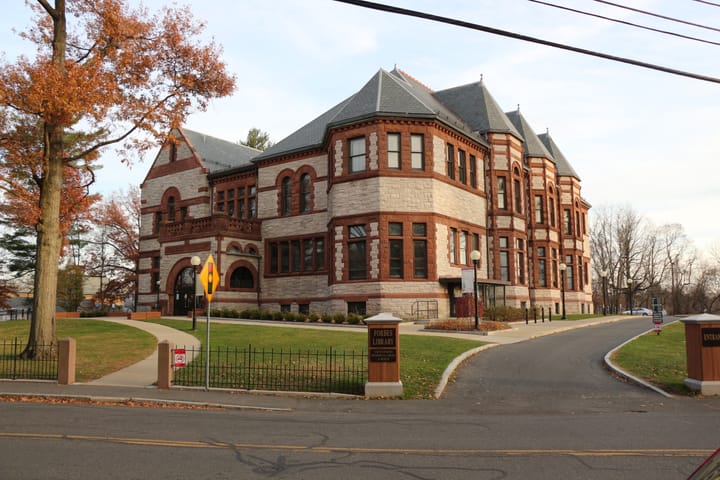Lee lectures on family reunion
Lee was the last speaker in a series of scholars brought to Amherst for the Korean-American Student Association (KASA) conference held last weekend, entitled “Reconciling the Past, Embracing the Future.”
Lee, who grew up in a predominantly white community, began by offering her listeners a sketch of her life. She recounted her experiences grappling with her identity within various different contexts. She explained how her background led to culture shock not only when she went to college at the University of California at Los Angeles, where there were many people with Asian roots, but also when she went back to Korea as a post-graduate.
Lee told students how she tossed her “lucky American penny” on a world map, determined to go from Korea to wherever the penny landed. Her penny landed on China. “I always believe in fate and destiny,” said Lee, who then went to China.
In China, Lee said that she found open arms in the Chosun Chinese, ethnic Koreans who migrated to China. Based on what Lee said she saw as a connection between the experience of these people and her own, she felt an “instant familiarity,” which developed into what Koreans call jung, a kind of kinship.
After one-and-a-half years abroad, Lee went home to California to think and write about the women of her family. In her grandmother, she said she found a “true patriot.” Lee said that her mother and grandmother were women she had “disrespected and disregarded all their lives” by not recognizing her heritage.
In 1991, the Lee family received a letter from a long-lost uncle who had been captured by the North Koreans during the Korean War in 1950.
“It was almost worse knowing that he had been alive all these years … knowing that he was starving,” said Lee.
Finally, in 1997, a Chosun Chinese man who smuggled goods in and out of North Korea offered Lee’s grandmother the opportunity to reunite with her son after 47 years. Lee said that the reunion at the Yalu River was one of the most emotional times of her life.
“My heart squeezed as if someone wrung it … when I saw the look of utter hopelessness on my uncle’s face,” Lee said. “He had no reason to live, and I begged for some kind of miracle.”
For the next few years, Lee and her family plotted an “extensive rescue mission.” Using false documents, they smuggled the family out of North Korea and into freedom. Lee went on to make her story public, most notably by being featured on “Nightline” with Ted Koppel.
“I was angry at the government for letting my uncle’s family suffer like this,” she said. She described her relatives as having looked “grotesque” and “like animals.”
However, Lee also explained how the reunion and the escape of several members of her uncle’s family did not come without some degree of tragedy.
“Political paranoia and mistrust have split the family in half,” she said, referring to the relatives who stayed behind in North Korea.
“Her talk definitely reminded me that the reunification of Korea is not something we can dismiss as something that we will deal with and make happen in 10 years. It’s a real issue, with real urgency,” said Shawn Choi ’03.





Comments ()